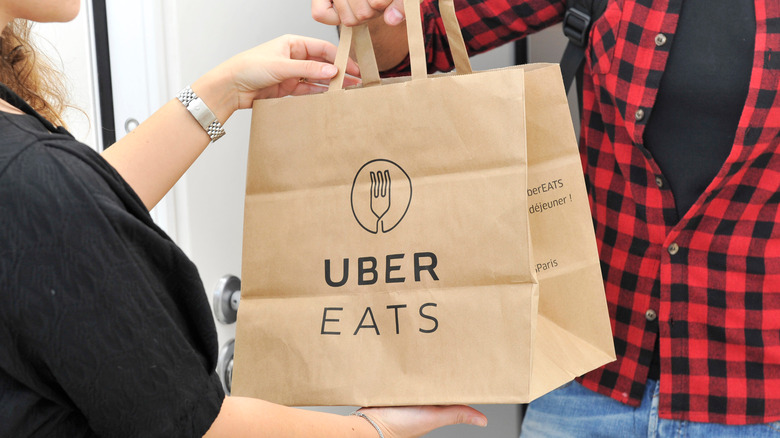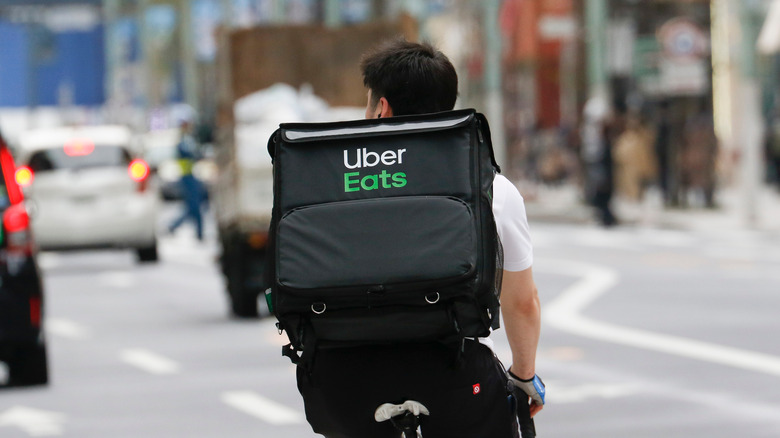Uber Eats Settled With The City Of Chicago For $10 Million. Here's Why
Uber Eats, the delivery service arm of the popular ridesharing app, is no stranger to scandal. The Guardian notes that in 2021, a contract was sent out to Australian Uber Eats drivers, which was aimed at establishing that they were in no way legally employed by Uber Eats, and as such, weren't entitled to benefits or employee protections. This contract was released shortly after Uber Eats paid a $400,000 settlement to an Adelaide couple who were criminally underpaid during their time working with the service (via Rideshare Driver Network).
Per WGNTV, an Uber Eats driver in Chicago took it upon themselves to report a pop-up kitchen that was being run out of a private suburban residence, which was therefore not subject to any state health codes. The kitchen was eventually closed down.
According to the Chicago Tribune, a $10 million settlement marked yet another scandal for Uber Eats in the Midwestern city. This hefty penalty came about from a number of infractions that the organization committed several years ago.
The Chicago settlement involved illegal fees
For the past two years, Chicago has been involved in a legal battle with Uber Eats, per the Chicago Tribune. One of the primary charges leveled against Uber Eats by the city is that the ridesharing company was nonconsensually adding restaurants to its platform. In 2021, at the request of the city, Uber Eats removed these illicitly added eateries. Additionally, the service was charging customers illegal delivery fees of over 15%.
The Chicago Sun-Times provides a breakdown of the various costs contained within the $10 million settlement. For instance, $3.3 million of the total was already paid by Uber Eats back in 2021. It was doled out to Chicago restaurants that had been affected by the company's criminally high delivery fees. The recent settlement added another $2.5 million to be used for the same cause, $500,000 of which will go to the restaurants that were nonconsensually added to the Uber Eats platform. These restaurants will also receive $2.5 million in commission waivers. Finally, $1.5 million will go to the city of Chicago itself to help pay the fees associated with the lengthy trial.

